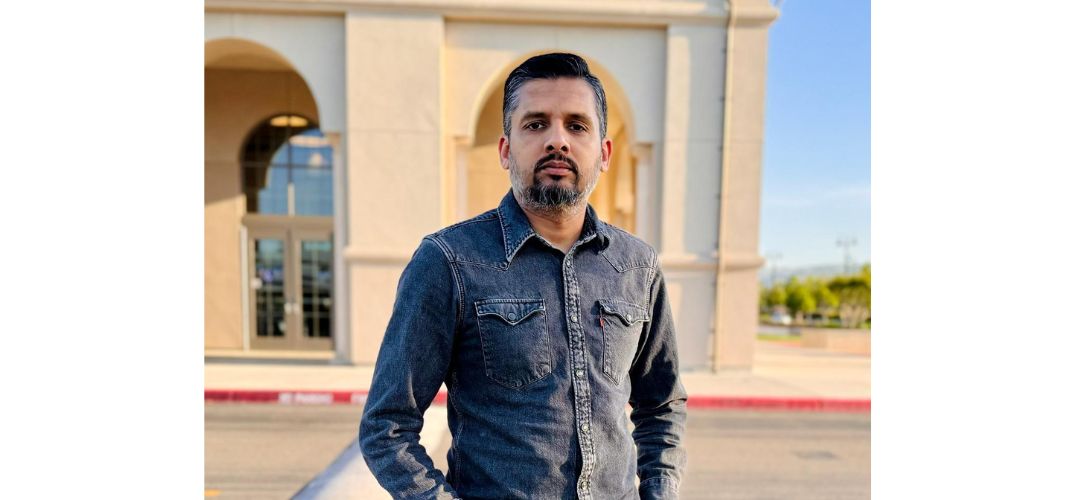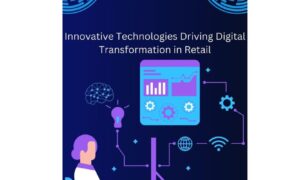Current retail operation demands emphasis on scalable technology together with complete omnichannel experiences because the digital landscape continues to rapidly transform worldwide. One of the practitioners of this digital transformation is Elby Mooken, a Senior Engineering Manager, who brings extensive engineering leadership experience helping to transform order management systems while spurring innovative teamwork worldwide.
In this interview, Elby highlights key developments during his professional career, where he details fundamental changes in architectural systems and pandemic management alongside team-building efforts of top-performing engineers. He provides insights into enterprise technology developments that will shape the future together with perspectives on upcoming technical innovations.
Q1: Elby, tell us about your role at Levi’s and your focus over the past few years.
My current role is Senior Engineering Manager for Order Management System (OMS) and omnichannel applications. My time over the last five years has been very much about enabling large scale digital transformation, architecting modernization with a focus on a scalable, reliable and customer centric set of supporting platforms. I have experience designing microservices, DevOps, cloud adoption, and leading teams spanning engineering pods across the globe.
Q2: You led a major architecture revamp in 2021. Can you elaborate on that initiative?
The accomplishment marked a turning point for our company. Our organization designed a total transformation of its entire e-commerce IT structure. Our mission was to build a worldwide microservices framework that served basic capabilities including inventory control and product and pricing functions. Our organization implemented a Composable Architecture to achieve higher modular functionality along with flexibility. Kafka enabled real-time event streaming as part of our system while we added tools such as API catalog and microservices starter kit which both accelerated delivery and maintained consistency.
Q3: Knowledge-sharing is a big part of leadership. How did you collaborate with peers outside Levi’s?
I’m also having quite a few conversations with peers in the tech community to share concepts- particularly about DevOps transformation and delivery maturity. These conversations largely focused on how we optimized build pipelines, automated deployments, and in general baked in CI/CD best practices in our engineering teams. Since my counterparts often build other similarly complex e-commerce platforms, it was a great opportunity to cross-pollinate ideas and learn from each other’s scale.
Q4: The pandemic posed major challenges for retail. How did your team support Levi’s during that time?
Ensuring business continuity became a priority during the COVID-19 disaster in 2020. My team launched omnichannel capabilities such as Buy Online Pickup In-Store (BOPIS) and Contactless Returns at a lightning pace. These capabilities enabled us to continue serving customers safely and keep operations running. It was a high-velocity, high-impact period that required agility and excellent technology execution.
Q5: Were there any recognitions tied to your efforts during that period?
Yes, I was fortunate to receive one of the company’s most prestigious engineering awards for our delivery during that critical time. It was a recognition not just of my leadership, but also of the team’s resilience and dedication under extraordinary circumstances.
Q6: From a leadership standpoint, how do you approach building and growing high-performing engineering teams?
The objective of my work focuses on enabling engineers to achieve organizational goals through clear directives while providing necessary assistance. Most of my time goes towards ensuring teams understand both business targets and maintaining sustainable architectural decisions. The culture of DevOps combined with continuous learning is what I deeply believe in. My aim is to motivate team members toward discovering innovative approaches that accelerate development while improving product quality.
Q7: Looking ahead, where do you see the next wave of innovation in enterprise engineering?
The upcoming future will depend heavily on intelligent automation as well as AI-assisted development along with event-driven architectures. We, at the company, are now exploring ways to enhance their observability function while also expanding their cloud infrastructure capabilities and developing end-to-end automated testing. It will not only be about finding the time to build features more quickly- the future will revolve around empowering engineering teams to be self-sufficient, data driven, and change-oriented.
Conclusion
The leadership of Elby Mooken illustrates how a combination of thoughtful engineering practices with strategic modernization along with a resilient corporate team culture turns business challenges into new possibilities. Elby’s expertise in technology together with his focus on collaborative innovation guides digital evolution toward better agility in enterprise commerce.



































